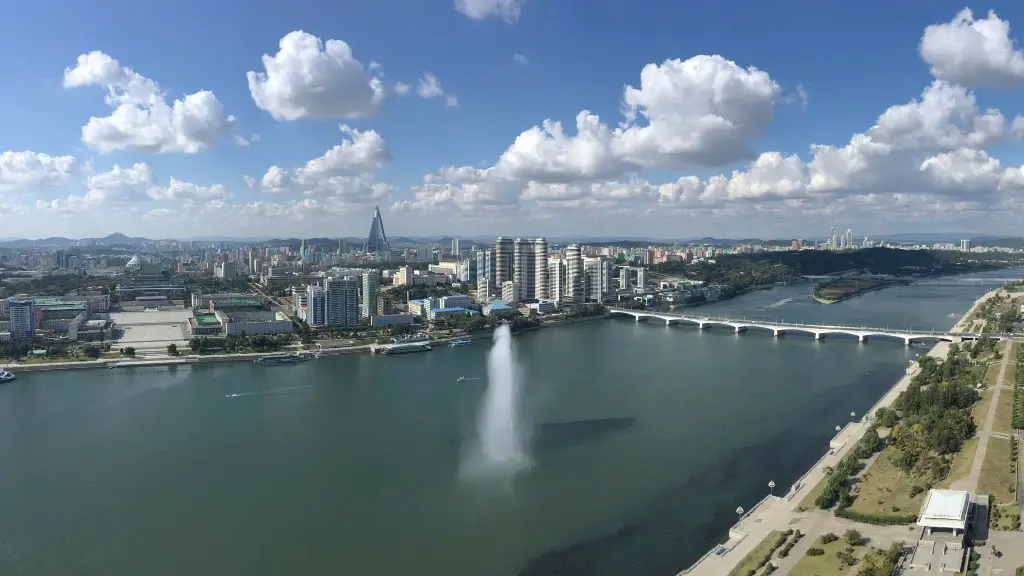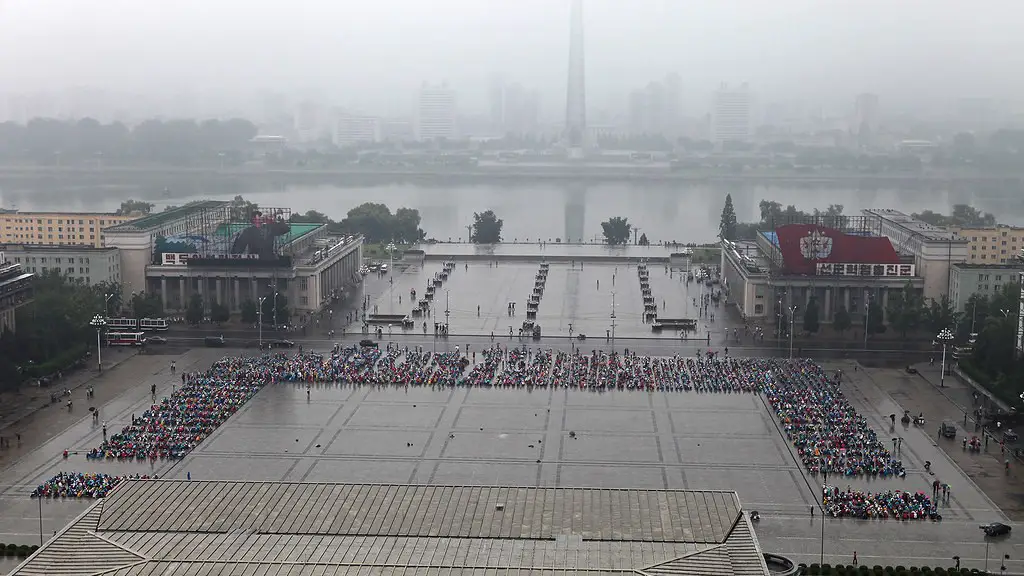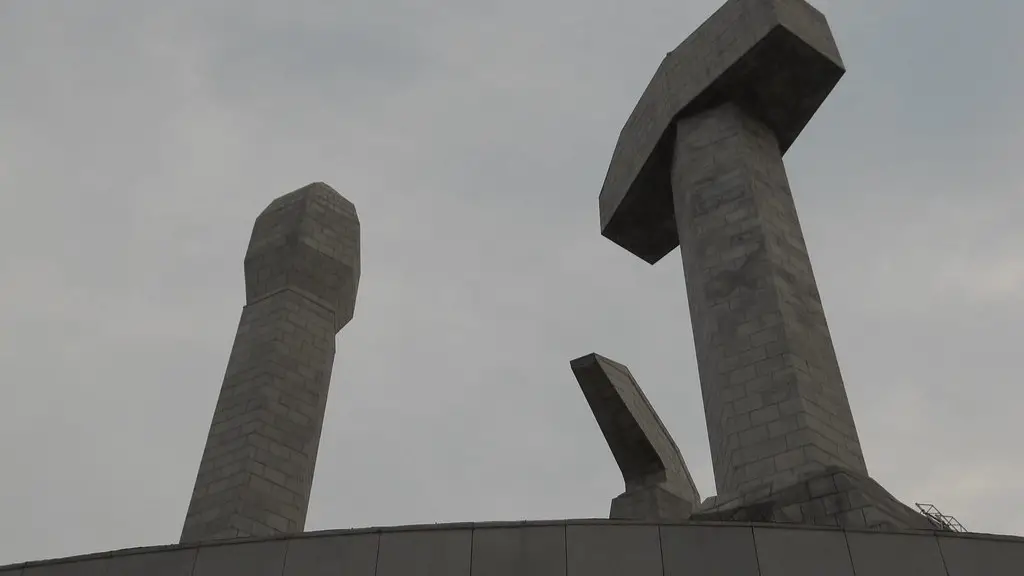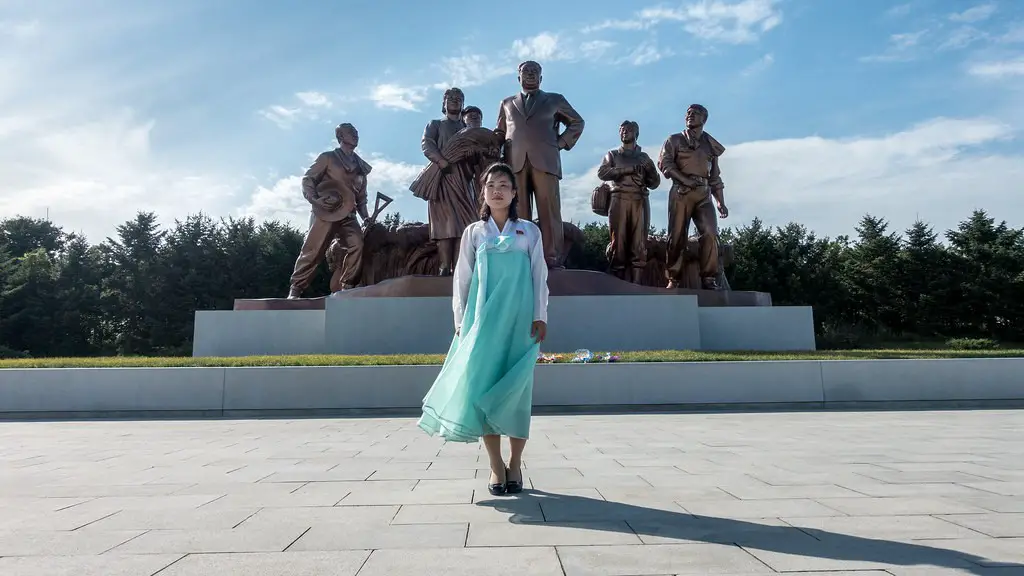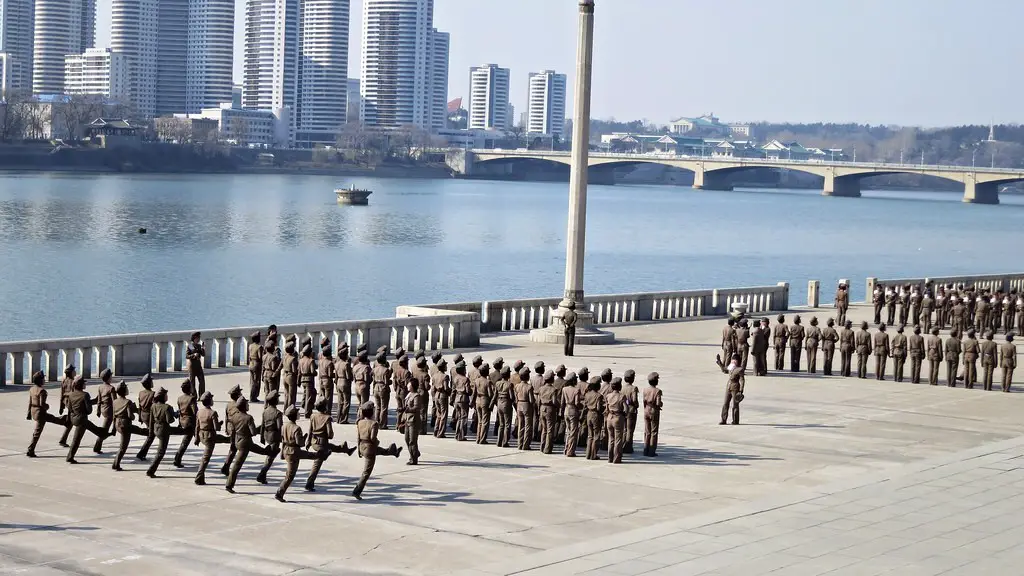North Korea has been described by many as a ‘rogue nation’, and much of that is due to the numerous reports of human rights violations, including the existence of prison camps. But just how many prison camps does North Korea have? Researchers have estimated that there are an estimated 31-40 political prisoners in North Korea. That figure is a sharp rise from the 5-7 camps that were known to exist in the 1980s.
The camps, which are known by the North Koreans as kwan-li-so, were set up as a way of controlling the population, with human rights groups claiming that as many as 120,000 people have been incarcerated within them since they were first established. These camps are believed to be located in remote areas of the country, away from the view of outsiders, and those detained are said to live in extremely harsh conditions, with little or no access to basic amenities. Detainees are often reported to have endured physical and psychological torture, deprivation of food and water, and other acts of brutality.
The United Nations Commission of Inquiry on Human Rights in the Democratic People’s Republic of Korea estimated that 50,000 to 80,000 prisoners were held in the camps in 2014, while a 2017 study estimated that there were between 80,000 and 130,000 prisoners being held in North Korean detention camps. The world’s attention was drawn to the camps in recent years, when it was alleged that inmates were routinely subjected to inhuman treatments, such as being forced to work in dangerous mines and being subject to torture and execution.
It is believed that there are several thousand inmates who are held in these camps for indefinite periods. Another common practice is for those who are accused of any kind of wrong doing to be sent to these camps without trial or due process. Those held in these camps are often members of the same families, and reports have indicated that many have died from starvation and harsh conditions.
It is thought that the camps are also sometimes used as an instrument of control by the North Korean government; there is concern that arbitrary detention, lack of freedom of movement, and non-transparent trials are used as a tool of repression in the country. As the camps’ locations remain largely unknown, it is difficult to verify the reports of the atrocities that take place within them.
Its Impact on the Outside World
The existence of prison camps in North Korea has serious implications for its interaction with other countries and international organisations. The United Nations and other human rights organisations have condemned North Korea’s practices and have called for an end to the arbitrary detention and abuse of prisoners. Furthermore, the camps have been a major contributor to the negative image of the country, with foreign nations and the international community perceiving it as a highly oppressive and oppressive regime.
The camps have also been used as a tool of international diplomacy and politics, with various countries using the camps as leverage in diplomatic negotiations over nuclear weapons and other geopolitical issues. The camps have been used as a bargaining tool and source of leverage for many nations, with the threat of further human rights abuses as a powerful and effective form of persuasion.
The existence of such camps has further strengthened the international community’s perception of North Korea as an oppressive and undemocratic nation. In the last decade, the camps have been used by the North Korean government to further limit the population’s access to information and control dissent within the country.
International Response and Sanctions
In response to the existence of prison camps in North Korea, the international community has imposed hundreds of sanctions on the country in an attempt to curtail human rights abuses, restrict North Korean nuclear weapons development, and pressure the government into improving its human rights record. These sanctions have included the freezing of North Korean assets, restrictions on North Korean imports, and the banning of certain individuals from entering the country.
Despite the international sanctions and pressure, North Korea remains adamant that the camps are necessary for the safety of the nation and its people. The country’s leadership has defended their use, claiming that the camps are intended for the rehabilitation of criminals and the protection of the nation. However, the United Nations and other international bodies have heavily criticized such excuses for the continued use of these camps.
The United Nations and other human rights bodies have strongly condemned the use of these camps and have called upon North Korea to immediately close them down. North Korea has not yet acceded to such calls and continues to resist international pressure and calls for change.
North Korea’s Reaction To International Criticism
Although North Korea has long been under international scrutiny for its human rights abuses, the country has maintained a largely defiant attitude in the face of international criticism. North Korean leader Kim Jong Un has been particularly adamant in his defense of the camps, and his regime has consistently denied any reports of human rights abuses, calling them “hostile programs.”
The regime has also consistently denied access to UN inspectors, despite repeated requests from the international body. Without access to the camps, there is very little information available on the lives of those held within them. North Korea’s refusal to cooperate with the UN and other international organisations casts further doubt on the country’s true intentions.
The North Korean government has also blocked the transmission of news from outside the country, and the population’s access to information is heavily restricted. It is believed by many that this is part of the country’s strategy for controlling and manipulating its citizens, as it limits their knowledge of the camps and the abuses carried out within them.
Campaigns To End Prison Camps
In recent years, there has been an increasing number of campaigns seeking to end the prison camps in North Korea. These campaigns have been largely initiated and led by international organisations, such as Amnesty International and Human Rights Watch. These organisations have called upon countries and corporations to take action to help pressure North Korea to close the camps, and to ensure the protection of the human rights of its citizens.
In addition, there have been regional campaigns such as the 2016 “Turn Out the Lights” campaign, which saw candlelight vigils held outside of North Korean embassies around the world in order to protest North Korea’s human rights abuses. Other campaigns have sought to draw international attention to the camps in an attempt to force the North Korean government to take action.
In spite of these campaigns, North Korea has yet to take any meaningful steps towards ending the use of the camps, and it is likely to be a long and difficult process. The regime has proven to be oppressive and unresponsive to international pressure and calls for change, and the use of prison camps seems to be firmly entrenched in the regime’s strategy for maintaining power in the country.
Concerns for the Future
Given the North Korean government’s persistent refusal to take action and its continued use of prison camps, there is growing concern for the future of those held within them. Human rights organisations have expressed deep concern for those subjected to the harsh conditions and abuses, particularly those with no hope of release or access to their families. This has raised further international pressure on the North Korean government and calls for an immediate end to the use of prison camps.
The future of North Korea’s prison camps remains uncertain, however, many international organisations and people are working to end their existence. International sanctions and campaigns, and the continued calls for action from the global community, may eventually lead to the closure of the prison camps and lead to a more free and open society, free from the oppression and human rights abuses of the past.
Calls For North Korea to Adhere to International Laws
Given North Korea’s persistent refusal to abide by international laws and standards of human rights, the international community has emphasised the importance of holding North Korea accountable for its actions and have called on the country to respect human rights, including the release and humane treatment of prisoners. There have been repeated calls for North Korea to adhere to international law and for the country to take action to ensure the rights of prisoners within their detention camps.
The United Nations has also recently made renewed calls for North Korea to comply with international human rights standards, and for the immediate release of those held in prison camps. In addition, the UN has emphasised the need for transparency and accountability in the North Korean justice system and has encouraged the country to open its prisons to international oversight.
The international community has also expressed deep concern for those held in North Korea’s prison camps and has demanded an immediate end to the human rights abuses and inhumane conditions they are subjected to. The ongoing calls for an end to these abuses, and the sustained pressure on North Korea to adhere to international human rights standards, appear to be having a positive impact, with the country having taken small steps in the right direction.
Conclusion
North Korea has a reputation for being a highly oppressive and undemocratic state, with the continued use of prison camps being a major contributor to this. The camps have been widely condemned by the international community and there have been numerous campaigns and measures implemented in an effort to end the abuse within them. The future of the camps remains uncertain, but with sustained pressure from the international community, it is hoped that progress can be made and those held within them can receive the justice and humane treatment they deserve.
